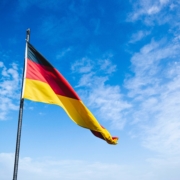9 German expressions you will never be taught at school
Ready to start talking to native German speakers? Then, you should learn nine typical German expressions
If you think you are ready to do the big step after spending years in language centres for high-priced lessons – that is to start to live among native speakers – this is not the case when it comes to German. You may be disappointed with your own knowledge when trying to get through an ordinary day in a German-speaking country. Most of us are used to both speaking and listening to English slang, but it does not occur when talking about German. At school you do not get to learn the most frequently used German expressions, like the ones listed below. Once you get the hang of it, you will feel like a real German.
NA?
While getting to know Germans you will notice that even some expressions that at first sounded easy to you are actually totally different from what people say in their everyday life, such as Wie geht’s dir? Na? (How are you doing?), frequently used with someone you are really close to.
NAJA
Do not confuse Na? with Naja, which expresses doubt and puzzlement, just like “well,..” or “meh”.
QUATSCH!
It is a frequently used expression which sounds like “Bullshit!” and can be used in a sentence such as Das ist totaler Quatsch!, to say that something is completely nonsense.
MACH’S GUT!
People usually use mach’s gut! in place of the most common Tschüß when saying goodbye to someone. Mach’s gut literally means “do it well” but it is normally translated as “take care!”.
QUASI, SOZUSAGEN, HALT
“Kinda”, “like”, “sort of”, are massively used by youngsters and common people in their everyday life, as well as in Italian, English and German. These expressions make any conversation more informal but be careful to not exaggerate!
KRASS
It is an expression for astonishment and has both a positive and negative connotation. The English equivalent would be “cool”, “great”, “sick”.
GEIL
Once you have got the meaning of this word you will not stop using it or listening to it on the streets to describe something that is “awesome”, “cool”, “rad”, “dope”, or even supergeil, as Friedrich Liechtenstein sings in a popular Edeka’s commercial . Be aware that this word has originally a different meaning conveying a sexual connotation, like “horny”, reason why you should avoid using it in any formal context.
JEIN
Jein renders the idea of uncertainty and is made of ja+nein. So, in case you are on the fence or hesitating, just say “jein!”.
AUF JEDEN FALL
German native speakers make a massive use of it, also in place of natürlich to utter “of course!”.

